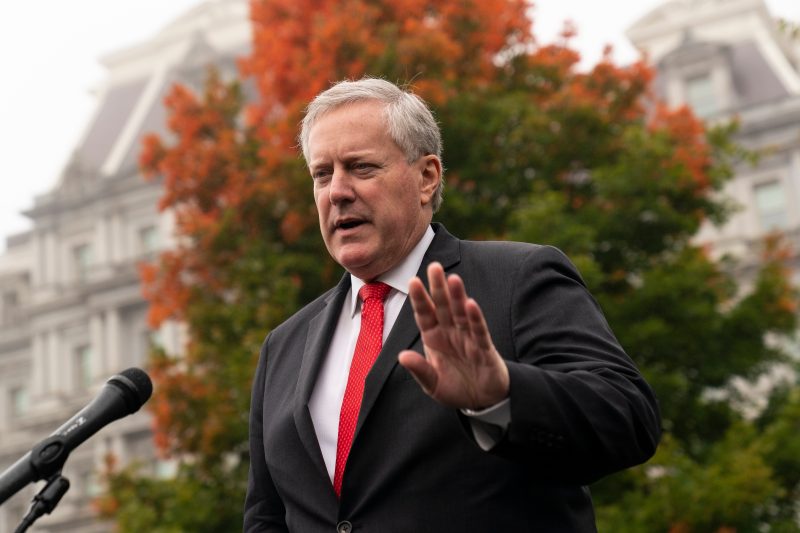Federal Judge Rules Charges Against Mark Meadows Must Stay in Arizona State Court
 On August 30, Mark Meadows faced a setback in his legal battle as a federal judge ruled that the charges against him related to events in Arizona must remain in state court rather than being transferred to federal jurisdiction. The decision comes after weeks of legal wrangling and arguments presented by both Meadows' legal team and the prosecution.
Meadows, a prominent political figure and former White House chief of staff, has been at the center of a legal storm since allegations surfaced regarding his involvement in the events leading up to the January 6 Capitol riot. The charges against him in Arizona are tied to his alleged communications with state officials and efforts to influence the certification of the 2020 election results.
The federal judge's ruling to keep the case in state court is significant for Meadows, as it means that he will have to face trial at the state level, where the charges originated. This decision adds another layer of complexity to Meadows' legal woes, as he continues to grapple with the fallout from his actions during his time in the White House.
Throughout the legal proceedings, Meadows has maintained his innocence and consistently denied any wrongdoing. His legal team has vigorously defended him, arguing that the charges against him are politically motivated and lack merit. Despite the setbacks he has faced, Meadows remains determined to fight the charges and clear his name.
The ruling to keep the case in state court is a critical development in Meadows' legal saga, as it underscores the complexities and challenges he continues to face. As the legal process unfolds, Meadows will have to navigate the intricacies of the state court system and present his case in front of a new set of legal authorities.
The decision by the federal judge is a reminder of the gravity of the charges Meadows is facing and the legal hurdles that lie ahead. As the case progresses, the spotlight will remain firmly fixed on Meadows and the outcome of his legal battle. The implications of this ruling extend beyond Meadows himself, as they highlight the broader implications of his actions on the political landscape and the rule of law.
On August 30, Mark Meadows faced a setback in his legal battle as a federal judge ruled that the charges against him related to events in Arizona must remain in state court rather than being transferred to federal jurisdiction. The decision comes after weeks of legal wrangling and arguments presented by both Meadows' legal team and the prosecution.
Meadows, a prominent political figure and former White House chief of staff, has been at the center of a legal storm since allegations surfaced regarding his involvement in the events leading up to the January 6 Capitol riot. The charges against him in Arizona are tied to his alleged communications with state officials and efforts to influence the certification of the 2020 election results.
The federal judge's ruling to keep the case in state court is significant for Meadows, as it means that he will have to face trial at the state level, where the charges originated. This decision adds another layer of complexity to Meadows' legal woes, as he continues to grapple with the fallout from his actions during his time in the White House.
Throughout the legal proceedings, Meadows has maintained his innocence and consistently denied any wrongdoing. His legal team has vigorously defended him, arguing that the charges against him are politically motivated and lack merit. Despite the setbacks he has faced, Meadows remains determined to fight the charges and clear his name.
The ruling to keep the case in state court is a critical development in Meadows' legal saga, as it underscores the complexities and challenges he continues to face. As the legal process unfolds, Meadows will have to navigate the intricacies of the state court system and present his case in front of a new set of legal authorities.
The decision by the federal judge is a reminder of the gravity of the charges Meadows is facing and the legal hurdles that lie ahead. As the case progresses, the spotlight will remain firmly fixed on Meadows and the outcome of his legal battle. The implications of this ruling extend beyond Meadows himself, as they highlight the broader implications of his actions on the political landscape and the rule of law.
If you would like to delve into the world of investment topics , go to our partner project Wall Street Wizardry
